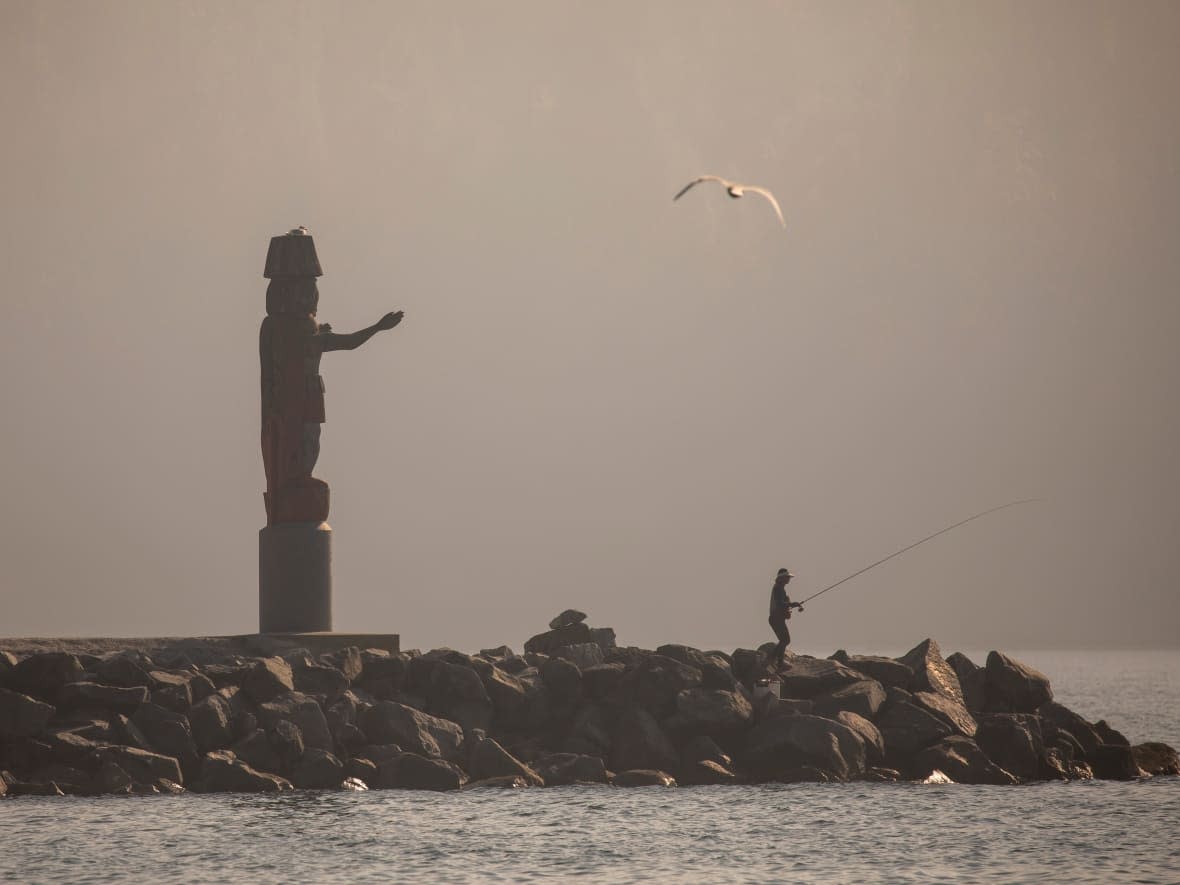Air quality advisories remain in effect across smoke-choked B.C.

Smoke from wildfires on both sides of the Canada-U.S. border is wreaking havoc on air quality in British Columbia, with advisories in effect for most of the province expected to last through the week.
Environment Canada has issued special weather statements or smoky skies bulletins from the west coast of Vancouver Island through the Lower Mainland to the Interior and up into the Peace River region. The Central Coast and Kootenays are also affected.
"Elevated pollution levels are expected or occurring," the advisories read.
"If you or those in your care are exposed to wildfire smoke, consider taking extra precautions to reduce your exposure. Wildfire smoke is a constantly changing mixture of particles and gases which includes many chemicals that can harm your health."
The weather agency rated the central and eastern Fraser Valley a 10 on its 10-step Air Quality Health Index on Wednesday morning. Metro Vancouver is currently rated at an eight. Across the rest of the province, the risk varies between a two and a five.
In a statement Tuesday, the Metro Vancouver regional district stressed the smoke is expected to remain until late Thursday and into Friday, when the weather is expected to change.
Rain is forecast Friday for the South Coast, according to CBC meteorologist Johanna Wagstaffe.
While smoky skies are expected to remain over the next 24 to 48 hours, Environment Canada said conditions can change "hour by hour" as smoke shifts.
"Avoid strenuous activities outdoors. Children and the elderly should also avoid outdoor physical exertion," the weather service advised.
"Reduce or reschedule strenuous activities outdoors, especially if you experience symptoms such as coughing and throat irritation."
The B.C. Lions football team confirmed Wednesday that it has moved practices indoors until the air quality improves.
Troye Flannery, technical director of the Chilliwack FC soccer club says it is "super frustrating" to cancel events and practise indoors.
'It doesn't seem as though we can get a break as an outdoor sport whether it be the floods last year, the air quality this year, obviously, the pandemic previously," he said. "So it's been tough. We've had to cancel a few days. Last night we were inside. We'll be in yet again tonight."
Once it hits seven or higher on the air quality health index, Flannery says, they have to cancel outdoor events as athletes are considered at risk based on the intensity and duration of training.

According to the B.C. Centre for Disease Control, exposure to air pollution can be irritating to the lungs and alter immune function, and people with pre-existing asthma or chronic obstructive pulmonary disease, heart disease and diabetes are at higher risk of harm.
People who are pregnant, infants and small children, the elderly, and anyone diagnosed with a respiratory infection are also considered more vulnerable and should reduce their smoke exposure.
Anyone experiencing shortness of breath, severe coughing, dizziness, heart palpitations or chest pain should get medical attention immediately.
Both the B.C. and Washington governments acknowledge a link between climate change and more intense and longer wildfire seasons


